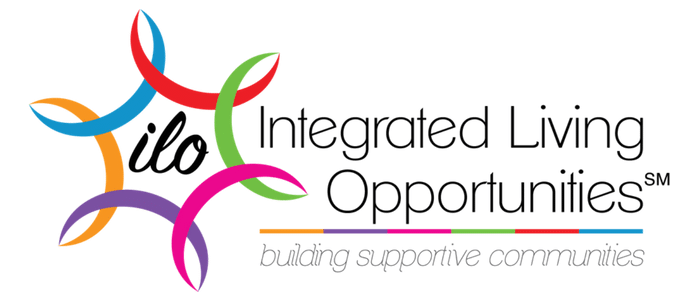Integrated Living Opportunities (ILO) is dedicated to helping self-advocates and their families build supportive communities for adults with disabilities. Our independent living model is sustained by our commitment to building community partnerships, helping self-advocates create personal and professional support networks, and by recruiting knowledgeable, experienced staff members to provide necessary services and supports.
Over the last month, we have published two blogs that highlight an ongoing issue in disability communities across the country: the shortage of available professionals in the direct support services fields. The quality of services received is crucial to the physical, mental and emotional health of individuals with disabilities. As pointed out in UCP’s Case for Inclusion 2019, “Direct Support Professionals are the backbone of community supports, but in general they are not staying in the field long enough to turn it into a career. Turnover is high and frequent, [and is] often highly disruptive to people with I/DD, a population for which stability is critical.”
Here at ILO, our staff members are important members of our community. Each position has been created with specific goals in mind, and together our employees work to ensure that every self-advocate has the tools needed to successfully transition to independent living and integrate into the communities of his or her choice.
ILO Staff
Once our participating families and self-advocates have completed ILO training and required assessments, ILO helps families find affordable staffing for the specific needs to the self-advocate. At this time, ILO does not provide the staff or the funding of the staff position for the self-advocate. ILO does, however, recruit and train employees to work with self-advocates and families to ensure that they have the tools necessary to create communities according to ILO’s guiding principles, i.e. creating personal and professional networks of support, relationship building, and developing community partnerships. ILO staff also facilitates recreation and social activities, and life skills classes for self-advocates.
Full Life Process™ Skills Inventory Staff
The Full-Life Process™ Skills Inventory is an extensive, integrated and interactive assessment of a self-advocate’s daily living skills. The Skills Inventory can be used to determine what the individual needs to do in order to be more self sufficient, whether it is learning or improving skills with money and budgeting, travel training, becoming more independent in the kitchen or learning how to be safe in their homes.
We have a number of Skills Inventory Administrators as well as a Master Consultant for Skills Inventory on staff at ILO. Our Master Consultant trains future Skills Inventory Administrators and completes the Skills inventories, as well as working to ensure that the Skills Inventory Tutors are compliant with the online assessment and goals as per the inventory. The Skills Inventory Administrators works with the family and the self-advocate to complete the Skills Inventory. The Skills Tutor/Life Coach provides direct, one-on-one support and training to self-advocates so that they develop and improve their independent living skills through the use of the Full Life Process™.
Community Builders
ILO has two types of Community Builders: Residential and Non-Residential. Both types of community builders have very similar responsibilities – they facilitate the development of community among self-advocates in their pods, as well as in the local and wider communities. They help self-advocates create relationships with other members of their pod, develop problem solving skills, and plan social and recreational events (in a way that supports participants acting as stakeholders). They also work one-on-one or in small group settings to help self-advocates develop individual skills.
While the Residential Community Builder shares a lot of responsibility with the non-residential, this role is a little more involved. Both types of Community Builders are responsible for regular check ins with their pod members. Residential Community Builders, however, work more closely with self-advocates, participating families, and the Executive Director to ensure that all self-advocates are setting and meeting goals, integrating into the community, working on independent living skills, and are leading full lives. The Residential Community Builder meets weekly with each self-advocate to identify goals and work on plans to ensure that they are met. They are also responsible to stay alert for issues relating to independent living, i.e. cleanliness, safety, etc. They act as a liaison between the self-advocate and other members of the community, i.e. landlords, other tenants, etc.
Community Life Coordinator
The Community Life Coordinator is primarily in charge of ensuring consistency across all ILO community pods and among community builders, communicating progress and updates in all pods to the ILO Executive Director, and supervising ILO Community Builders and Life Coaches/Skills Tutors. The Community Life Coordinator collaborates with the Community Builders in the development of goals for each pod, as per the Full Life Model, establishes a calendar of activities/events for each pod, and provides guidance that ensures quality of activities in each pod, among other duties.
At ILO, we are very proud of the roles that we have created to support our self-advocates and their families in their journey towards independent living, whether they are actively preparing to move into a home of their own, or are a part of ILO’s Community Group. If you are interested in learning about the individuals that we have recruited to fill these important roles, please take a moment to browse through the Our Staff page on our website. If you would like to learn more about ILO and how your family member with disabilities can become a part of our community, please contact us
